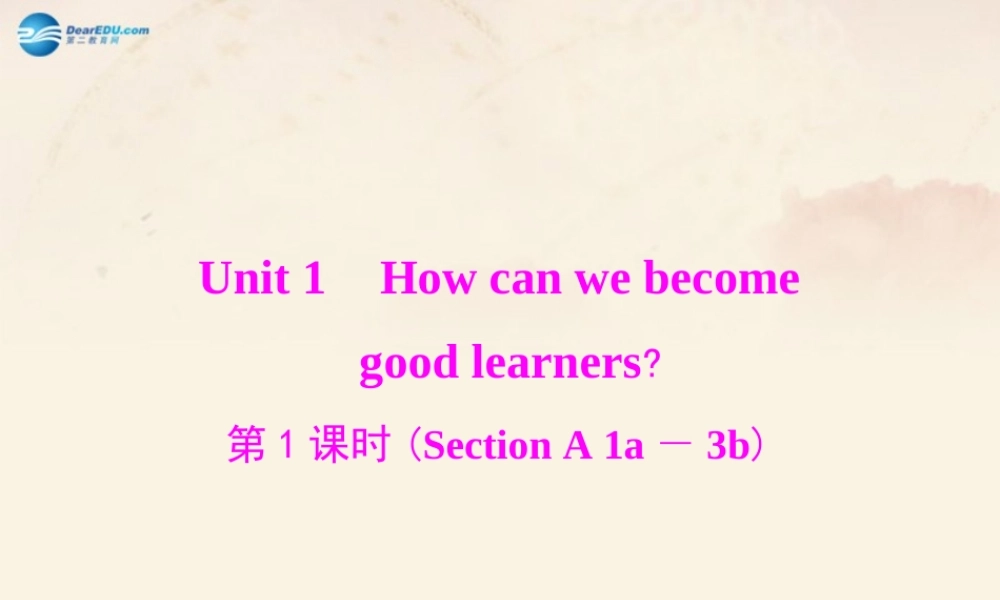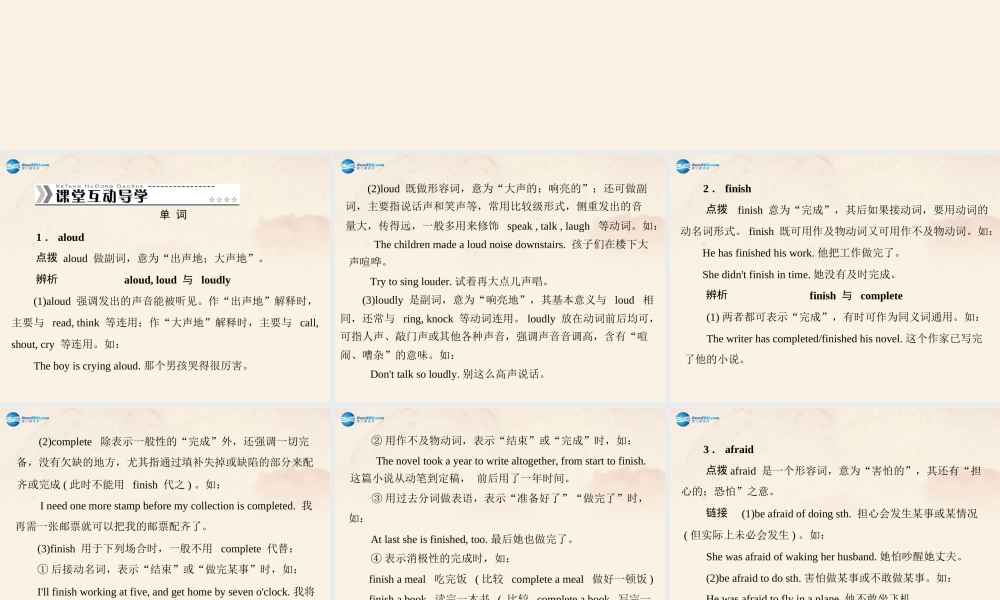Unit 1How can we become good learners?第 1 课时 (Section A 1a - 3b)单 词1 . aloud点拨辨析aloud 做副词,意为“出声地;大声地”。aloud, loud 与 loudly(1)aloud 强调发出的声音能被听见。作“出声地”解释时,主要与 read, think 等连用;作“大声地”解释时,主要与 call,shout, cry 等连用。如:The boy is crying aloud. 那个男孩哭得很厉害。(2)loud 既做形容词,意为“大声的;响亮的”;还可做副词,主要指说话声和笑声等,常用比较级形式,侧重发出的音量大,传得远,一般多用来修饰 speak , talk , laugh 等动词。如:The children made a loud noise downstairs. 孩子们在楼下大声喧哗。Try to sing louder. 试着再大点儿声唱。(3)loudly 是副词,意为“响亮地”,其基本意义与 loud 相同,还常与 ring, knock 等动词连用。 loudly 放在动词前后均可,可指人声、敲门声或其他各种声音,强调声音音调高,含有“喧闹、嘈杂”的意味。如:Don't talk so loudly. 别这么高声说话。2 . finish点拨finish 意为“完成”,其后如果接动词,要用动词的动名词形式。 finish 既可用作及物动词又可用作不及物动词。如:He has finished his work. 他把工作做完了。She didn't finish in time. 她没有及时完成。辨析finish 与 complete(1) 两者都可表示“完成”,有时可作为同义词通用。如:The writer has completed/finished his novel. 这个作家已写完了他的小说。(2)complete 除表示一般性的“完成”外,还强调一切完备,没有欠缺的地方,尤其指通过填补失掉或缺陷的部分来配齐或完成 ( 此时不能用 finish 代之 ) 。如:I need one more stamp before my collection is completed. 我再需一张邮票就可以把我的邮票配齐了。(3)finish 用于下列场合时,一般不用 complete 代替:① 后接动名词,表示“结束”或“做完某事”时,如:I'll finish working at five, and get home by seven o'clock. 我将在五点下班,七点钟回到家。② 用作不及物动词,表示“结束”或“完成”时,如:The novel took a year to write altogether, from start to finish.这篇小说从动笔到定稿, 前后用了一年时间。③ 用过去分词做表语,表示“准备好了”“做完了”时,如:At last she is finished, too. 最后她...


